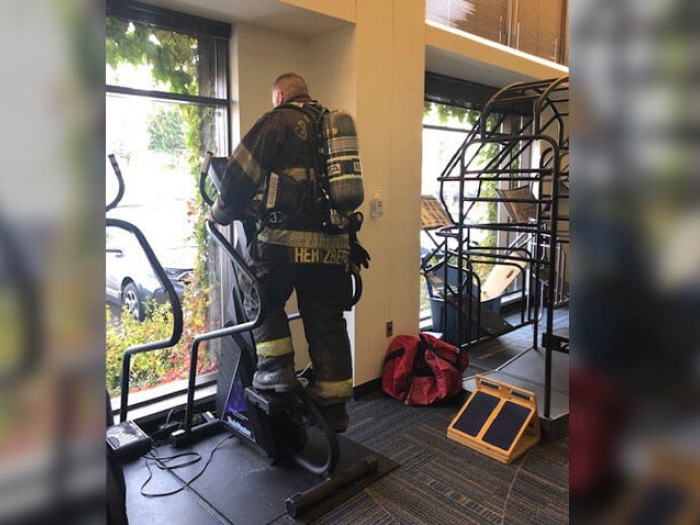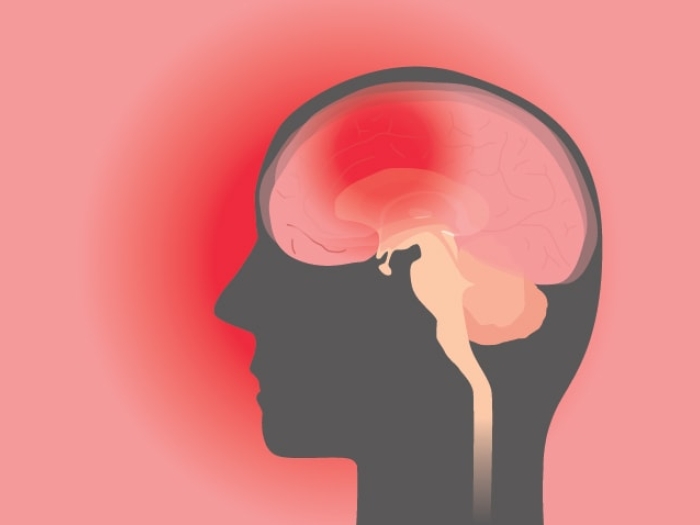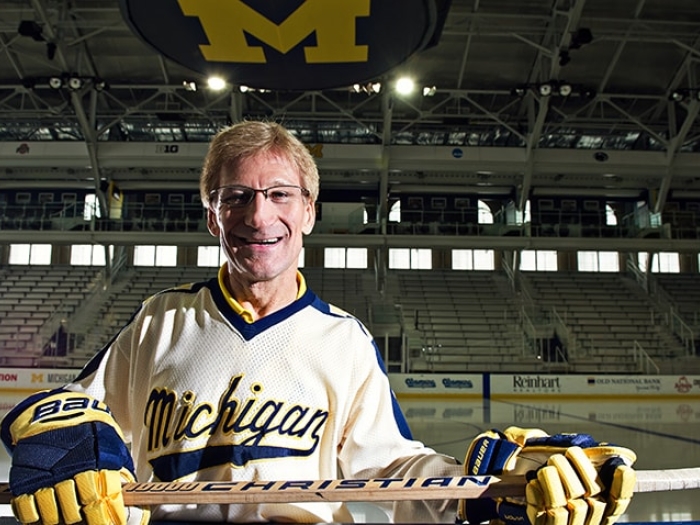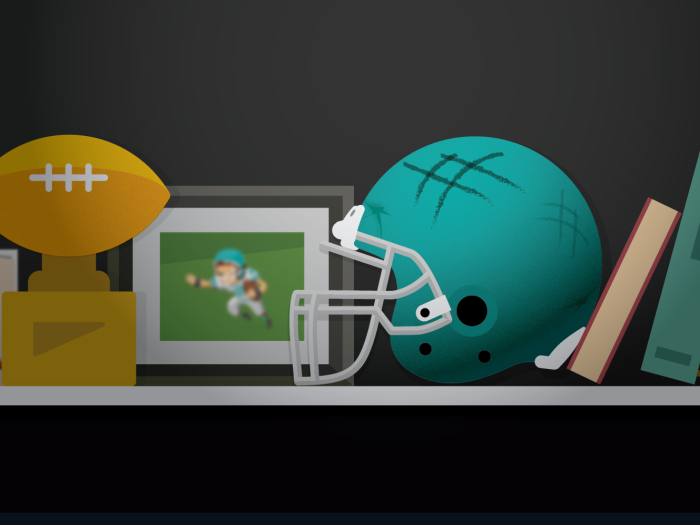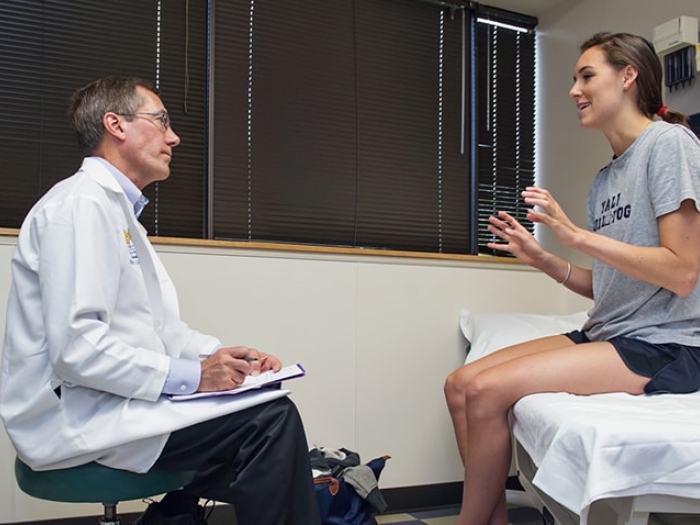A Michigan Medicine neurologist shares the right way to heal a ‘rebooting’ brain.
7:00 AM
Author |

When an unexpected injury to the head or neck occurs, whether from a sporting injury, car accident or some other collision, a concussion may result.
MORE FROM MICHIGAN: Sign up for our weekly newsletter
Concussions are traumatic brain injuries characterized by the head and brain rapidly moving back and forth, striking the inside of the skull. When a concussion is suspected, many people may be unsure of what to do next.
That's partly because concussions aren't always obvious, and because there is no blood test or scan that can detect a concussion, unlike the clinical diagnosis you'd get for a heart attack or broken bone. A concussion needs medical attention, but it can't be treated with medication or surgery. It needs time to heal and sometimes other therapies.
Still, any suspected concussion should warrant medical evaluation — preferably within three days of the injury.
"Almost everyone gets better if they're treated the right way," says Matthew Lorincz, M.D., Ph.D., a Michigan Medicine sports neurologist who co-directs Michigan NeuroSport.
That's why it's crucial to properly manage a concussion and receive follow-up evaluations.
Lorincz talked about what patients and families should know.
How a concussion happens
Sudden jarring can cause the brain, which is normally protected by a surrounding layer of spinal fluid, to bounce or twist inside the skull, resulting in concussion.
And it needn't stem from a direct hit: "One of the common scenarios we see is when force hits a person's body, their body and head gets whipped around," Lorincz says. "As a result, the brain is whipped around."
Contrary to what some may think, a concussion isn't a bruise. It's an injury at the cellular level, with no visible signs of harm. A loss of consciousness isn't required.
"I tell people there's a dysfunction in the brain that has happened because your brain saw an impact of some type," Lorincz says. "It's not a structural injury. It's a bit more like if your computer is running slow … it's rebooting, but it is a biological process."
How concussions are diagnosed
Doctors can't diagnose a patient with typical tools. "There's no blood test or scan" to confirm a concussion, Lorincz says. A 22-point symptom checklist is one tool to use in concussion diagnosis and management.
SEE ALSO: A Team Approach to Concussion Care Changes One Athlete's Outlook
Telltale signs include headache, imbalance and mental fogginess or memory problems. Feeling emotional is also common: "Right after the injury, you might cry out of the blue and not know why," Lorincz says.
If repeated vomiting, loss of consciousness or significant worsening of symptoms occurs, head to the emergency room immediately.
In the first four hours or so after a suspected concussion, it's best to stay awake to monitor for signs that may warrant emergency room evaluation. After a few hours pass, there is no need to keep someone up or repeatedly wake them. Rest and sleep can begin the healing process.
Other indicators can take time to surface. In the days after a concussion, a person might experience dizziness, difficulty sleeping, neck pain or irritability. Some people may also develop or have worsened anxiety or depression.
How doctors treat concussion
Getting a consultation as soon as possible is key to assessing the injury — and calming any fears. Lorincz notes most concussion patients don't have permanent brain damage and, once healed, there's no greater risk of a future concussion than before the injury.
Still, recuperation is necessary. In the first few days after a concussion, patients should manage their care like a flu diagnosis: bed rest and slowing down their normal routine. But unlike past guidelines advising "cocoon therapy" — seclusion in a dark room — best practices now say concussion patients should get up and about as soon as possible, within reason.
Light physical activity may help recovery, Lorincz says. Physicians might also recommend vestibular therapy, to help reduce dizziness and balance issues. In addition, physical therapy may be needed when neck injuries accompany a concussion.
How concussion patients go forward
A follow-up visit with a doctor should take place about a week after the first visit to ensure the recovery is on track. By this time, a young patient ought to be able to handle some schoolwork and mental activity — "which is our No. 1 priority," Lorincz says.
Avoiding a premature return to sports is also key, because there's a higher risk of brain injury if another hit occurs before a concussion heals. All 50 states enforce Return to Play laws that typically mandate specific hiatus periods, medical clearance and informed consent before an athlete can compete again.
Recovery times vary by age. "Most people get better within 14 days," says Lorincz, but about one-third of concussion cases may take three weeks or longer to recover.

Explore a variety of health care news & stories by visiting the Health Lab home page for more articles.

Department of Communication at Michigan Medicine
Want top health & research news weekly? Sign up for Health Lab’s newsletters today!
